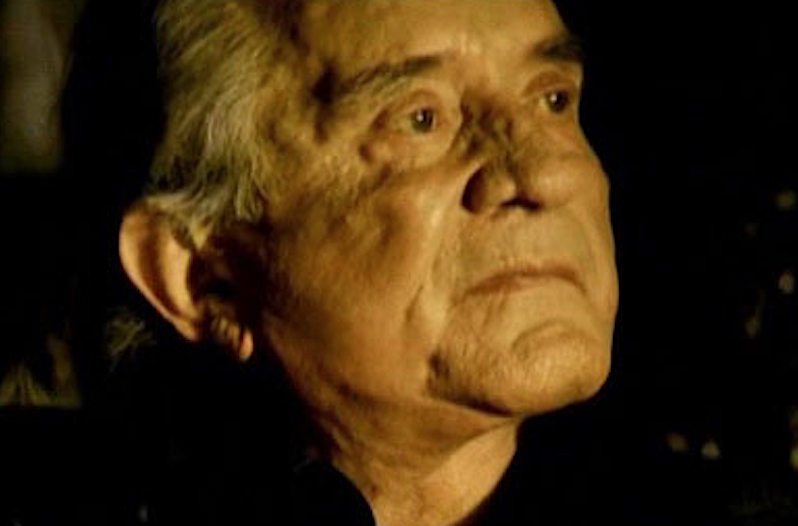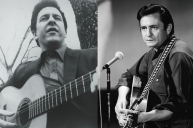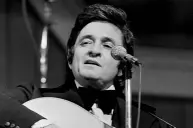Videos by Wide Open Country
Johnny Cash's late-career renaissance on producer Rick Rubin's American Recordings label somehow managed to make the Man in Black an even cooler customer for devoted fans who otherwise might've never heard any version of Nine Inch Nail's "Hurt." It also won over curious young listeners interested to hear how an aging country musician interpreted Trent Reznor's dark lyrics. Both trends continue over 15 years later, making the recording one of the most groundbreaking singles from Cash's lengthy career.
Cash recorded the song for 2002 covers album American IV: The Man Comes Around. Like other albums recorded by Rubin, Cash's gravelly voice takes center-stage. Accompanied by a sparse arrangement with an acoustic guitar, it awakens even more goose-bumps.
While the original song spoke of depression, Cash's voice, lyrics, and prior reputation masterfully transform it into a gloomy yet hopeful statement of faith and mortality. Both Cash and his wife June Carter Cash, who appears in the music video, passed away in 2003, making it an eerie closing statement of a long creative journey.
An Industrial Rock Masterpiece
The original 1995 version is one of Nine Inch Nails' better-known railings against the human condition. Singer and songwriter Trent Reznor deals with such issues as self-harm and heroin addiction head-on with hash lyrics and even harsher instrumentation. It resounded with fans of heavy rock's last great mainstream run, giving it enough cultural relevance to capture the attention of Cash and Rubin.
With imagery, many country music fans might consider bizarre or even blasphemous, what's a well-written, emotionally-rich piece of music might have never reached many of the over 2 million listeners to download Cash's version. Perhaps no other artist at no other time could have closed such a radically different era/genre divide.
Rewriting the Cash Myth
Rubin's work with Cash revisited the rougher edges of the aging performer's image. After years of Billy Graham Crusades and lesser-known albums that appealed to those nostalgic for lost innocence, Cash's American years revisit a time when he had the tough yet damaged persona of a proto-outlaw, singing to hardened prisoners way down on their level. That barely scrapes the surface of a complex man, also known for his family values and steadfast faith, but at least it sounded cool to the children of hard rock and heavy metal.
Besides that, country fans disenchanted with the mainstream charts surely appreciated Cash covering NIN and an equally surprising b-side, Depeche Mode's "Personal Jesus," as statements of Christian morals that were a far cry from early-aughts radio fodder.
An Icon Reborn For the MTV Generation
Cash's "Hurt" resounded with older and younger fans in part because of its powerful music video. It was shot near Nashville at the then-closed House of Cash Museum. The former home of Cash's, the Hendersonville, Tennessee museum was in dire condition when director and NIN collaborator Mark Romanek chose it as an ideal setting for a story about an older man's fading memories and lingering regrets.
Footage of an aging music legend and his beloved spouse coping with a desperate place in their waning lives still reduces longtime fans to tears. Both barely resemble the lively entertainers that once graced stage and screen, adding a new level of sorrow to a song Cash turned into a parting statement.
For younger fans raised on music videos as a modern art form, hype about the near-mythical Man in Black suddenly made sense. The video and song back up the notion that Cash, a former rockabilly artist, exuded punk attitude and art-rock creativity long before those terms started getting tossed around. It also proves that as a storyteller, he could get as much meaning and emotion out of a modern industrial rock song about depression as he could from an old gospel hymn about redemption.
In all, it became one of the best videos ever shot for a country singer, adding new depth to a great storyteller's final morality tale.




